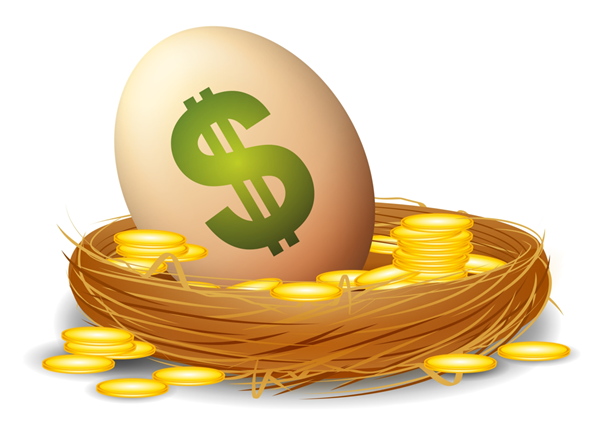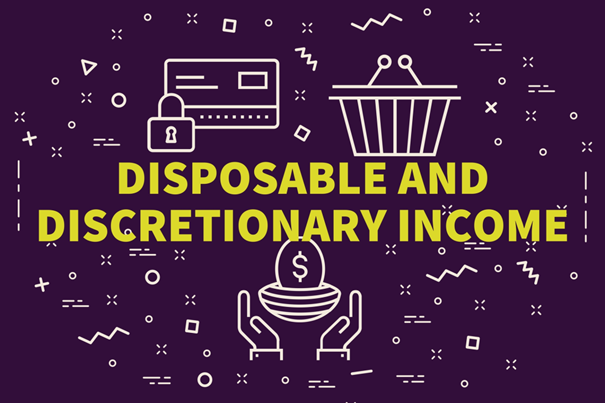Definition
Related Definitions
Discretionary Income
What is discretionary income?
Discretionary income can be simply defined as the amount of leftover money with an individual from his salary after managing all the expenses such as house rent, bills, personal necessities, investments, and other expenditures.
Vacations, luxuries, and other non-essential expenditures can also be included under the belt of discretionary income as it is supposed to cut down on a job loss or deduction in salary. These non-essential products or services are also referred to as discretionary goods. It is proven that discretionary goods businesses suffer the most during an economic crisis.
For instance, the ongoing COVID-19 pandemic has almost ended the travel business, which is discretionary goods.

Image source: © Madartists | Megapixl.com
Summary
- Discretionary income is identified by the amount of leftover money remaining to an individual after his essential expenditure.
- It plays a big role in determining the economic health of a nation.
- Three factors that discretionary income depends on are spending, investing and savings.
Frequently Asked Questions (FAQ)
How can discretionary income be explained?
Discretionary income is like the fuel to the car named 'economy'. The economy is a cycle of earning and expenditure in a balanced form. Thus, an excellent way to ensure an economy is flourishing is to increase discretionary income.
Following are the factors that discretionary income depends on:
- Spending
When individuals spend more on luxurious products, the money goes for the growth of that business. Therefore, the growth of that business enables them to hire more individuals giving rise to more discretionary income.
The growth in a company’s net earnings also indicates that it can return the shares to the shareholders and other investors, increasing their discretionary income.
- Investing
When people invest in a particular business or buy shares, the money basically goes for the growth of the business. As a result of that, the business can offer more jobs increasing discretionary income.
Moreover, investing in businesses also gives a chance to earn more revenue, thus increasing the investor’s discretionary income.
- Saving
Instead of spending or investing, some people simply prefer to save their discretionary income in their bank accounts. Thus, the bank keeps their deposits safe and gives out this money as loans to the businesses in dire need. As a result of this, businesses tend to grow and create job opportunities that increase discretionary income. Overall, there is a growth in the economy.
How can we calculate discretionary income?
Case 1: Individual and family expenses
The discretionary income can be simply calculated by subtracting the expenditure of essentials from the total in-hand salary. The same process can be followed to calculate your annual discretionary income. Below are the steps mentioned to calculate the discretionary income:
- Take account of your total income- The first step is to take account of your total annual earnings, including your part-time income if any.
- Deduct money for taxes- Deduct money from your annual income that you have to pay as taxes.
- Deduct money for essentials- Deduct money for spending on essentials such as house rent, bills, etc.
- Calculate the leftover money- The remaining money that you have is your discretionary income.
Case 2: For income-driven repayment
In this case, the discretionary income cannot be simply calculated by subtracting the essential expenses from the total income. Instead, a standard method is followed to distribute the discretionary income fairly between every borrower.
- For the Income-Based repayment plan, Pay as You Earn repayment plan, or loan rehabilitation, the discretionary income is calculated by subtracting 150% of the federal poverty level based on your location and family condition from your annual salary.
- For the income-contingent repayment plan, the discretionary income is calculated by subtracting 100% of the federal poverty level based on your location and family from your annual salary.
What is the difference between discretionary income and disposable income?
People often misunderstand discretionary income as disposable income. However, there exists a fine line difference between discretionary income and disposable income.

Image source: © Lancelotlachartre | Megapixl.com
- Disposable income- Disposable income can be referred as the in-hand salary of a person. It can be calculated by deducting the amount of tax payable from the total annual salary of a person. Disposable income includes both the expenses of the essentials as well as the luxuries.
- Discretionary income- Discretionary income can be referred to as the money that is left after spending for essentials. Thus, discretionary income is utilized for affording all the non-essentials goods and services like travelling.
What is the impact of discretionary income on the economy?
As mentioned above, if the economy is the car, then discretionary income acts like its fuel. Discretionary income is considered an important factor when talking about the economy of any country as it determines the economic health of a nation. The discretionary income is also used to determine several other things, such as marginal consumption propensity (MCP), marginal savings propensity (MSP), and market leverage ratio.

Image source: © Irbisnariel | Megapixl.com
Example of discretionary income
Let us assume that the annual salary of a person is US$100,000 per year. He spends up to US$ 70,000 in the year on his taxes, bill payment, essential family needs, education of children, etc. The remaining US$30,000 is considered as his discretionary income. This income can be utilized to buy non-essential items, which are typically referred to as discretionary goods. This money can also be utilized for investments such as buying shares or insurances. Alternatively, it can also be saved in a bank account for future use. In all three cases, a person contributes to the economy of the nation in various way.
- Purchasing a luxury item contributes to the growth of the business.
- Investing in shares and life insurances can strengthen the power of those businesses where people invest.
- Saving money allows you to indirectly lend your money to small businesses through the bank for their growth.
Thus, we can rightly conclude that in all three cases, a person contributes to the development of the business and economy of a nation.
